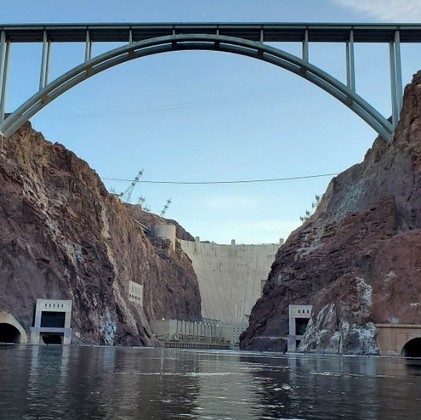Oregon State University part of $8M federal effort to improve electric grid operation
CORVALLIS, Ore. – Oregon State University is part of an $8 million Department of Energy effort to update and improve the operation of the nation’s hydroelectric generation systems, many of which are roughly a century old.
Ted Brekken, professor of electrical engineering and computer science in the OSU College of Engineering, will lead Oregon State’s $1.9 million portion of the project, along with co-principal investigators Eduardo Cotilla-Sanchez and Yue Cao, also electrical engineering and computer science researchers at Oregon State.
Brekken, who oversees the Wallace Energy Systems & Renewables Facility at OSU, will explore ways to enhance grid function and flexibility as the grid receives more electricity from wind and solar sources and deals with modern loads such as the charging of electric vehicles.
“These advances and improvements can be implemented within the next five to 10 years and will be relevant for decades to come,” Brekken said.
Brekken is part of OSU’s Energy Systems group, which conducts research on a range of topics including renewable energy, motors, generators, power supplies, power quality and electrical systems resiliency.
Brekken’s team on the Department of Energy project is aiming to demonstrate and quantify the value of a hybrid hydroelectric-storage generation unit, which involves combining a hydropower unit that does not have storage capability with supercapacitors.
Supercapacitors are short-term energy storage devices commonly used in systems requiring regular and rapid charge/discharge cycles, like automobiles and other vehicles, elevators and industrial machinery.
Brekken will guide the construction of a 200-kilowatt, lab-based hybrid hydroelectric-storage generation unit to serve as a testing ground for performance analysis and model validation.
The team will also develop a high-resolution, real-time, wide-area grid model for investigating the hoped-for grid operation benefits, which include improved ability to accommodate the growth of wind and solar generation, along with overall grid operational resilience and stability.
The other two grants awarded by the Department of Energy as part of the $8 million funding package to improve hydropower flexibility and grid reliability both went to teams led by power companies, General Electric and Littoral Power Systems.
Hydropower, one of the oldest and largest sources of renewable energy, uses the natural flow of moving water to generate electricity. It accounts for nearly 60% of Pacific Northwest electrical generation, 37% of total U.S. renewable electricity generation, and roughly 7% of total electricity generation, according to the DOE.













